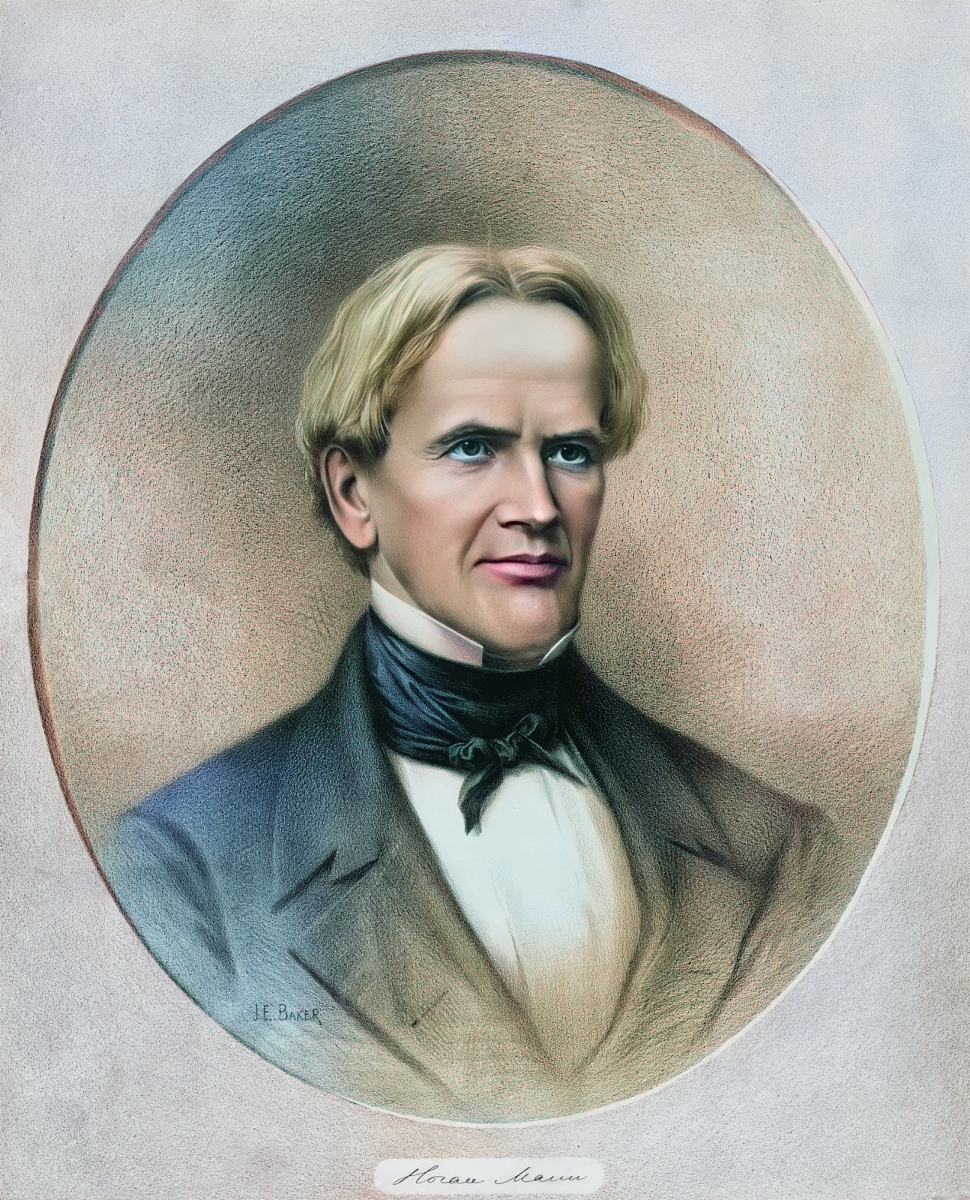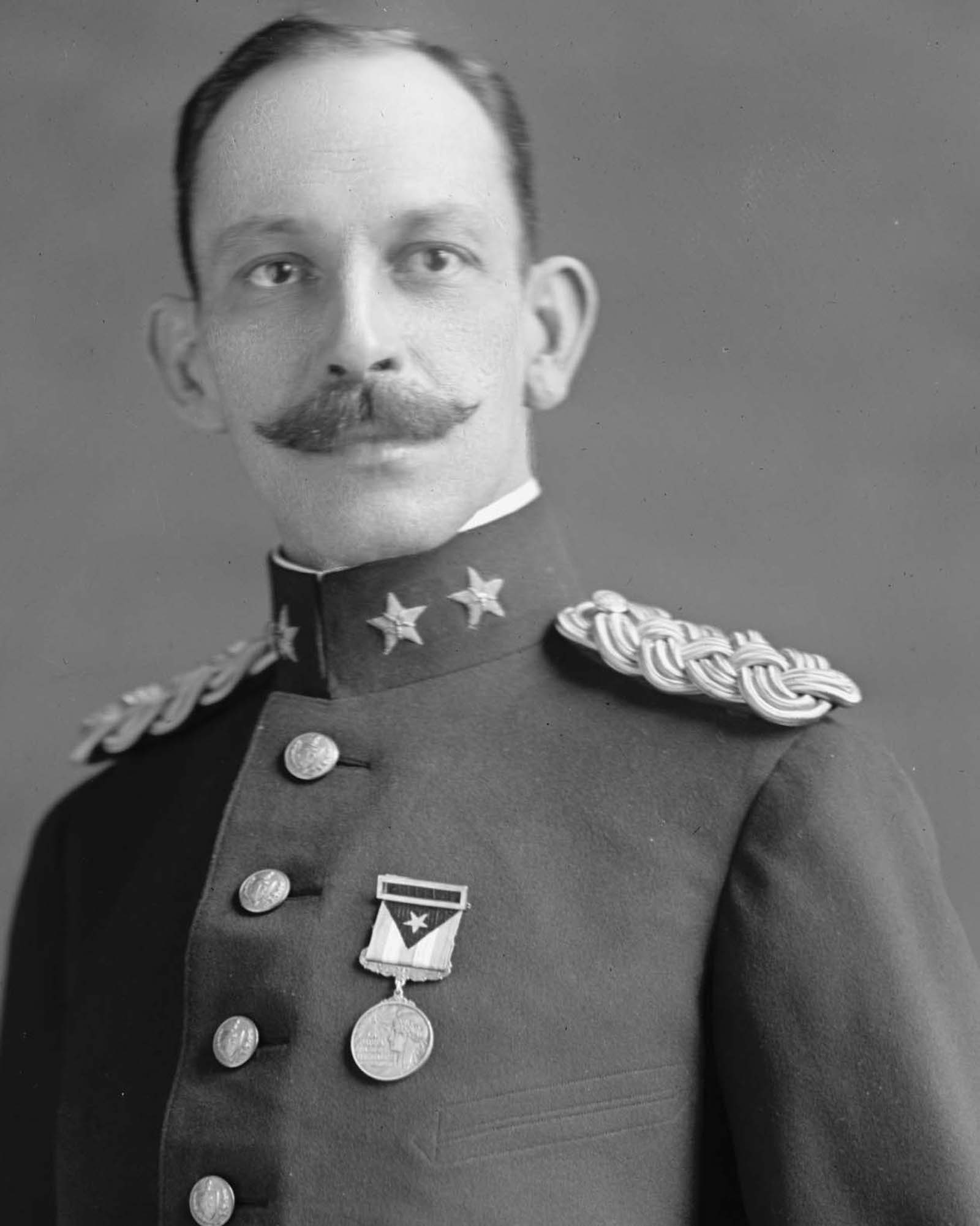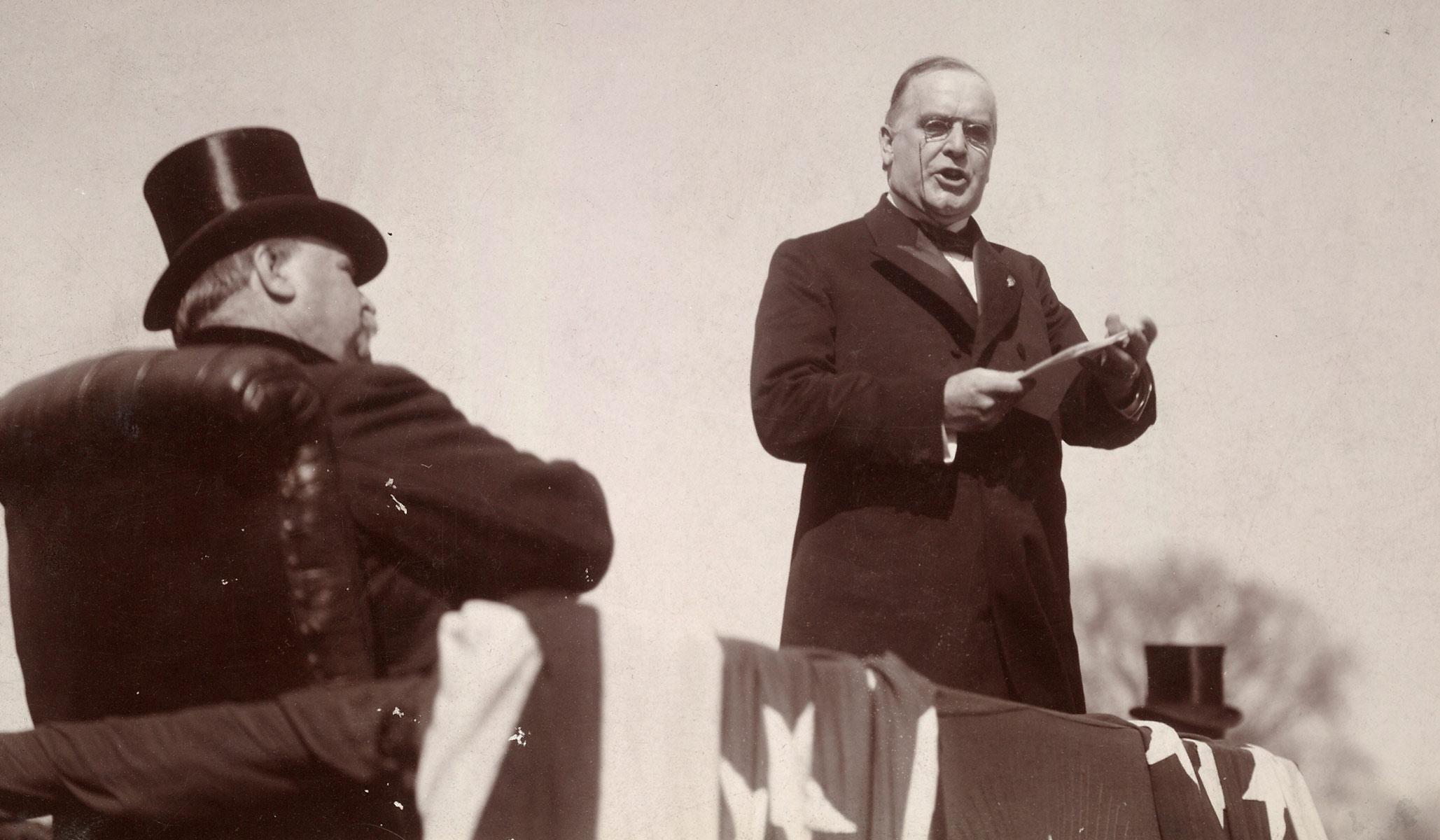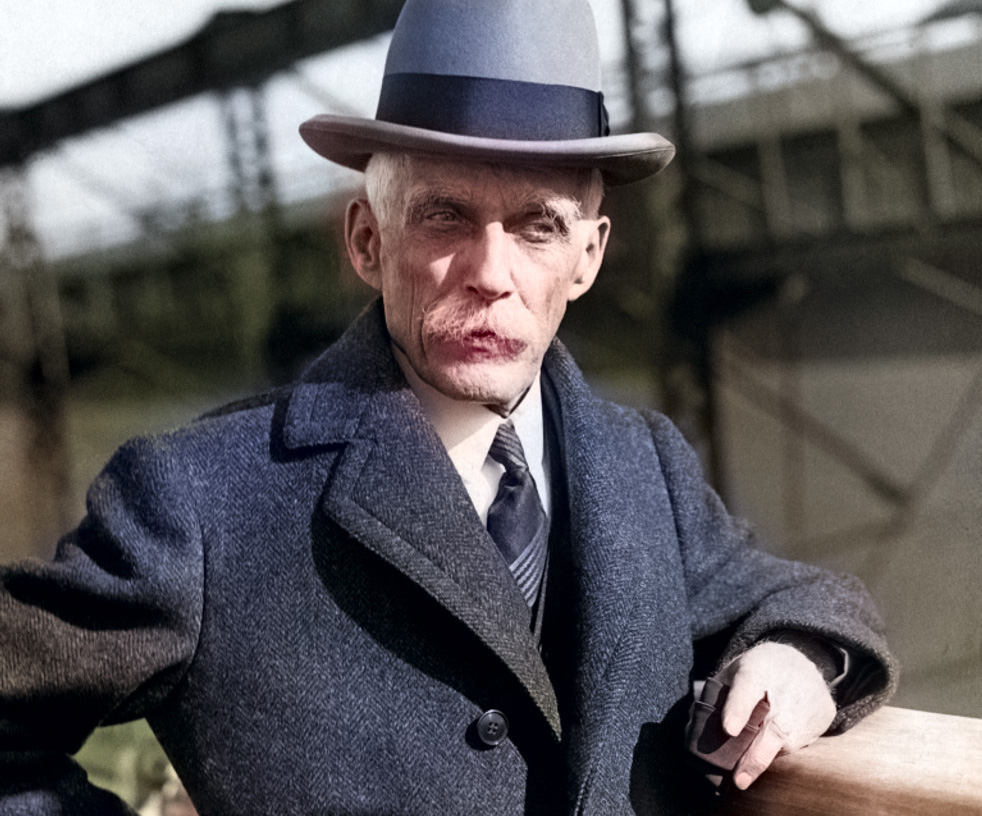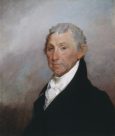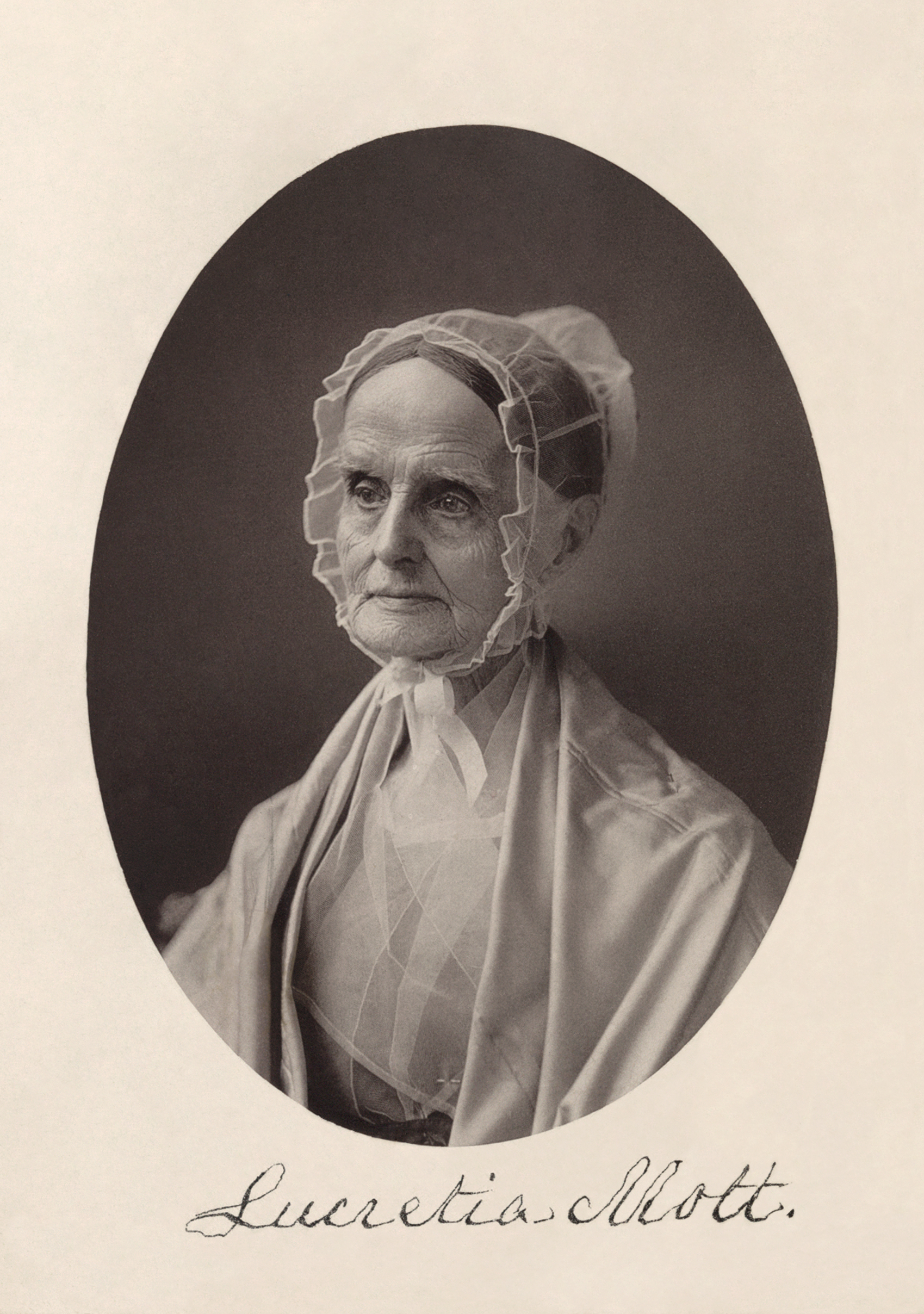Andrew Mellon
Andrew Mellon was a promient... financier, philanthropist, and politician who wielded immense influence over the United States' financial and cultural landscapes.
His story is one of success, innovation, but also of controversies that continue to fuel debates to this day.
Early Life and Rise to Prominence
Born in Pittsburgh, Pennsylvania, to a wealthy family, Andrew Mellon was groomed for success from an early age. His business acumen led him to amass one of the largest fortunes in America, which he further multiplied through shrewd investments and entrepreneurial ventures.
Major Contributions
Mellon's role as Secretary of the Treasury under three U.S. presidents dramatically shaped economic policies during the 1920s. He implemented tax cuts and federal budget reductions, fueling economic growth but also contributing to the inequality and financial instability that would later culminate in the Great Depression. Furthermore, Mellon was a dedicated philanthropist, responsible for the founding of the National Gallery of Art and supporting various educational and cultural initiatives.
Controversies and Complexities
While Mellon's financial policies brought short-term prosperity, critics argue that they also contributed to the conditions leading up to the Great Depression. His contentious role in the Teapot Dome Scandal further complicates his legacy, as does his focus on laissez-faire capitalism, which many view as prioritizing wealthy individuals and corporations over the welfare of the broader American public.
Public and Historical Perception
Although hailed as a financial genius during his time, Mellon's legacy has become a topic of scrutiny and debate among historians and economists, especially in light of the shifting attitudes toward wealth disparity and economic justice.
A Towering Figure
Andrew Mellon was undeniably a towering figure in American finance and politics. His influence continues to be felt, and his life serves as a testament to both the potential and the pitfalls of unfettered capitalism.
Biographica
Elijah Lovejoy
Elijah Lovejoy (1802-1837) WHO HE WAS: Elijah Parish Lovejoy was an American Presbyterian minister, journalist, and news editor who was a staunch abolitionist. He was murdered by a pro-slavery mob in Alton, Illinois, for his anti-slavery editorials. His death at the hands of a mob made him an icon of the abolitionist movement and his life and work highlighted the dangerous divide over slavery in America. WHAT HE SAID: “But as long as American blood courses through these veins, I shall hold myself at liberty to speak, to write, and to publish whatever I please on any subject.” WHY HE MATTERED: Lovejoy became a martyr for the abolitionist cause, his death intensifying the national debate over slavery and inspiring many to take a stronger stance against the institution, including influencing figures like Abraham Lincoln and John Brown.
Francisco Madero
Francisco Madero (1873-1913) WHO S/HE WAS: Mexican revolutionary and president of Mexico (1911–13), who successfully ousted the dictator Porfirio Díaz by temporarily unifying various democratic and anti-Díaz forces. He proved incapable of controlling the reactions from both conservative and revolutionaries that his moderate reforms provoked, however. WHY S/HE MATTERED: In death Madero’s name became a symbol of revolutionary unity in the continuing struggle against military despotism—now embodied in the Huerta regime. His martyrdom, if not his career, made him an inspiration to the democratic forces of the Mexican Revolution.
Dolley Madison
Dolley Madison (1768-1849) WHO SHE WAS: Dolley Madison was an American socialite, wife of James Madison, the fourth President of the United States, and a notable figure in the early development of American politics. She is often remembered for her role in shaping the role of First Lady, her social graces, and for saving the portrait of George Washington from the White House during the War of 1812 before it could be destroyed by British troops. WHAT SHE SAID: “My husband is the best man in the world, but he is as cold as a statue.” This candid reflection from Dolley Madison gives us a glimpse into the personal life and marital dynamics of one of America’s early First Ladies. WHY SHE MATTERED: Dolley Madison’s social acumen and hospitality were pivotal in the early formation of political society in Washington, D.C. Her courage and quick thinking during the War of
James Madison
James Madison (1751-1836) James Madison, the “Father of the Constitution,” was the fourth President of the United States and a pivotal figure in the founding of the nation. His contributions to the drafting of the Constitution and the Bill of Rights have shaped American law and government profoundly. Madison also co-founded the Democratic-Republican Party with Thomas Jefferson. WHAT HE SAID: “The advancement and diffusion of knowledge is the only guardian of true liberty.” Madison’s dedication to education and an informed electorate was a cornerstone of his belief in a resilient republic. WHY HE MATTERED: Madison’s leadership during the War of 1812 and his role in crafting the U.S. Constitution and the Bill of Rights have left an indelible mark on the American political landscape. His foresight in balancing federal and state powers is reflected in the ongoing dialogue about the role of government in American lives.
Alfred T. Mahan
Alfred T. Mahan (1840-1914) WHO S/HE WAS: Alfred Thayer Mahan, a renowned naval historian and strategist, shaped the course of modern naval warfare. His influential writings, including “The Influence of Sea Power Upon History,” had a profound impact on navies around the world. WHAT S/HE SAID: Organized force alone enables the quiet and the weak to go about their business and to sleep securely in their beds, safe from the violent without or within. WHY S/HE MATTERED: Alfred Thayer Mahan’s scholarship and advocacy for naval strength, exemplified in his seminal work, played a pivotal role in defining global maritime strategies. His legacy prompts discussions about naval power, geopolitics, and the enduring relevance of his ideas.
Horace Mann
Horace Mann (1796-1859) WHO HE WAS: Horace Mann was a pioneering figure in American education reform, widely recognized as the “Father of the Common School Movement”. His advocacy for universal, non-sectarian public education fundamentally transformed the education system, emphasizing that a free, common schooling should be available to all, regardless of social class or background. A fervent believer in the power of education to uplift and equalize, Mann worked tirelessly to promote compulsory education, improve educational quality, and professionalize teaching. WHAT HE SAID: “Education, then, beyond all other devices of human origin, is the great equalizer of the conditions of men – the balance-wheel of the social machinery.” WHY HE MATTERED: Horace Mann’s efforts laid the foundation for the modern public school system in the United States. His six principles of education reform underpin many of the values we still hold today about public education. Mann was also influential in
William Marcy
William L. Marcy (1786-1857) WHO SHE WAS: William Learned Marcy was an influential American statesman who served as a U.S. Senator, the Governor of New York, U.S. Secretary of War, and U.S. Secretary of State. His career spanned several pivotal periods in early U.S. history, during which he was known for his practical politics and involvement in the Democratic Party. WHAT SHE SAID: “To the victor belong the spoils of the enemy.” WHY HE MATTERED: Marcy played a crucial role in shaping American policy both domestically and internationally. He was a defender of Jacksonian democracy, advocate for the “spoils system,” and as Secretary of State, he addressed complex international issues, such as the Ostend Manifesto.
José Martí
José Martí (1853-1895) WHO S/HE WAS: José Martí was a Cuban poet, essayist and journalist who became a symbol for Cuba’s bid for independence against Spain in the 19th century. Born in Havana to Spanish parents, his short life was dedicated to the promotion of liberty, political independence for Cuba and an intellectual independence for all Spanish Americans. Putting his ideology into practice, he died in action in February 1895, during the invasion of Cuba. WHAT S/HE SAID: It is my duty to prevent, through the independence of Cuba, the U.S.A. from spreading over the West Indies and falling with added weight upon other lands of Our America. All I have done up to now and shall do hereafter is to that end…. I know the Monster, because I have lived in its lair—and my weapon is only the slingshot of David. WHY S/HE MATTERED: Through his writings and political
William McKinley
William McKinley (1843-1901) WHO S/HE WAS: William McKinley was the twenty-fifth President of the United States, and the last veteran of the American Civil War to be elected. By the 1880s, McKinley was a nationally known Republican leader; his signature issue was high tariffs on imports as a formula for prosperity, as typified by his McKinley Tariff of 1890. As the Republican candidate in the 1896 presidential election, he upheld the gold standard, and promoted pluralism among ethnic groups. His campaign introduced new advertising-style campaign techniques that revolutionized campaign practices and beat back the crusading of his arch-rival, William Jennings Bryan. The 1896 election is often considered a realigning election that marked the beginning of the Progressive Era. WHAT S/HE SAID: We need Hawaii just as much and a good deal more than we did California. It is Manifest Destiny. WHY S/HE MATTERED: McKinley was an ardent expansionist. Under his
Andrew Mellon: The Man Behind America’s Financial Landscape
Tenskwatawa (The Prophet) (1775-1836) WHO HE WAS: Tenskwatawa, known as “The Prophet,” was a Shawnee religious leader and the brother of the renowned warrior and diplomat Tecumseh. His teachings and visions played a pivotal role in the cultural and political awakening of Native American tribes in the early 19th century. WHAT HE SAID: Reflecting his spiritual and political influence, Tenskwatawa preached: “The Great Spirit has made us all. He is for us, and we will not fight against Him.” WHY HE MATTERED: Tenskwatawa’s spiritual revival movement and call for Native American unity laid the foundation for his brother Tecumseh’s efforts to resist European-American encroachment. His legacy underscores the importance of cultural preservation and the resilience of indigenous beliefs.
James Monroe
James Monroe (1758-1831) WHO HE WAS: James Monroe was the fifth President of the United States, serving from 1817 to 1825. Before his presidency, Monroe was a statesman, lawyer, diplomat, and founding father who played a pivotal role in the American Revolution and the formative years of the United States. WHAT HE SAID: “The best form of government is that which is most likely to prevent the greatest sum of evil.” WHY HE MATTERED: Monroe’s presidency is noted for the Monroe Doctrine, a cornerstone of American foreign policy, and the “Era of Good Feelings,” marked by political harmony. His leadership also included the acquisition of Florida and addressing the Missouri Compromise.
Lucretia Mott
Lucretia Mott (1793-1880) WHO SHE WAS: Lucretia Mott was a pioneering advocate for women’s rights and an ardent abolitionist. Her Quaker faith informed her strong beliefs in equality and nonviolence, and she became a central figure in the fight against slavery and for the enfranchisement of women. A gifted orator and strategist, Mott’s activism helped initiate the first women’s rights convention in Seneca Falls in 1848. WHAT SHE SAID: “Learning, while at school, that the preamble to our Constitution asserts liberty and justice as the inalienable right of every citizen, the inconsistency of this with the principles of slavery impressed my mind with such force that I was not satisfied until my voice was raised against it.” WHY SHE MATTERED: Mott was not only significant for her role in the abolitionist movement but also as one of the early architects of the women’s rights movement. Her home was a station






